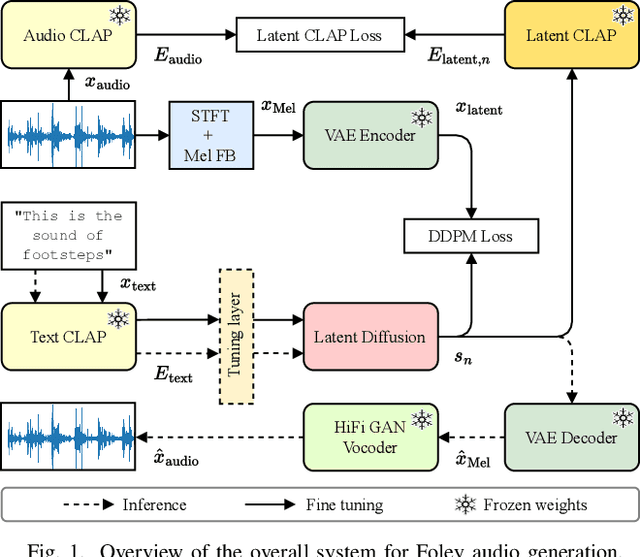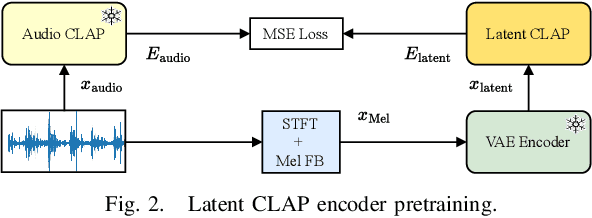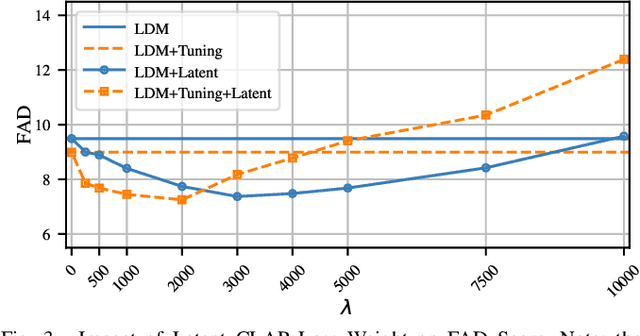Hassan Salami Kavaki
CUNY Graduate Center
Latent CLAP Loss for Better Foley Sound Synthesis
Mar 18, 2024



Abstract:Foley sound generation, the art of creating audio for multimedia, has recently seen notable advancements through text-conditioned latent diffusion models. These systems use multimodal text-audio representation models, such as Contrastive Language-Audio Pretraining (CLAP), whose objective is to map corresponding audio and text prompts into a joint embedding space. AudioLDM, a text-to-audio model, was the winner of the DCASE2023 task 7 Foley sound synthesis challenge. The winning system fine-tuned the model for specific audio classes and applied a post-filtering method using CLAP similarity scores between output audio and input text at inference time, requiring the generation of extra samples, thus reducing data generation efficiency. We introduce a new loss term to enhance Foley sound generation in AudioLDM without post-filtering. This loss term uses a new module based on the CLAP mode-Latent CLAP encode-to align the latent diffusion output with real audio in a shared CLAP embedding space. Our experiments demonstrate that our method effectively reduces the Frechet Audio Distance (FAD) score of the generated audio and eliminates the need for post-filtering, thus enhancing generation efficiency.
ImportantAug: a data augmentation agent for speech
Dec 14, 2021



Abstract:We introduce ImportantAug, a technique to augment training data for speech classification and recognition models by adding noise to unimportant regions of the speech and not to important regions. Importance is predicted for each utterance by a data augmentation agent that is trained to maximize the amount of noise it adds while minimizing its impact on recognition performance. The effectiveness of our method is illustrated on version two of the Google Speech Commands (GSC) dataset. On the standard GSC test set, it achieves a 23.3% relative error rate reduction compared to conventional noise augmentation which applies noise to speech without regard to where it might be most effective. It also provides a 25.4% error rate reduction compared to a baseline without data augmentation. Additionally, the proposed ImportantAug outperforms the conventional noise augmentation and the baseline on two test sets with additional noise added.
 Add to Chrome
Add to Chrome Add to Firefox
Add to Firefox Add to Edge
Add to Edge